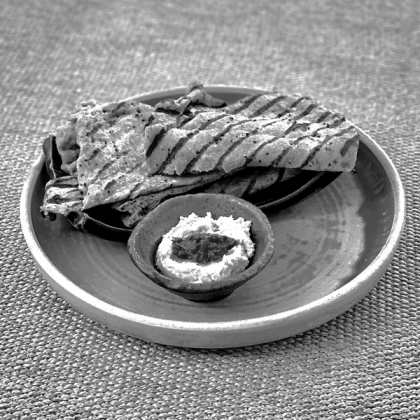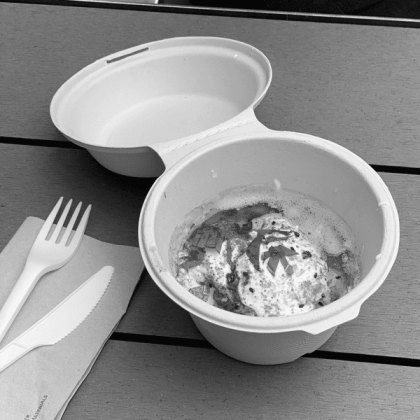A new edition of Margaret Costa’s “Four Seasons Cookery Book”, first published in 1970, arrives from the publisher, and you can’t work out which is sadder. Is it the fact that the book’s title is so weirdly anachronistic in the times in which we live? Or the fact that the foreword to this classic of seasonal good eating is written by Delia Smith, that great promoter of packaged and prepared foods.
My generation has been the generation that has allowed the importance of seasonal eating to be eroded by the mechanics of supermarket retailing. What was obvious to Margaret Costa in 1970 – “The best kind of cooking doesn’t depend on exotic and expensive ingredients, only upon the best and freshest of whatever you decide to use” - is no longer obvious to anyone in these islands.
Why bother to exult over May’s asparagus when it can be bought all year round? Why worry about the six-week-season for fresh peas when we can get a bag of frozen petits pois in every freezer cabinet? Why celebrate the first of the new season Irish potatoes when we have had the chance to eat Egyptian potatoes for weeks before the locals ever get near a shelf?
Seasonal eating, like religious observance and holidays in Tramore, is something our parents did, but that we have moved on from. We are sophisticated, whilst our parents were merely simple, God love ’em.
The truth, of course, is that we have paid a terribly high price for worshipping at the altar of convenience, whilst sacrificing the God of quality. But the price we have paid is dealt with in what is today a devalued currency, and so it gets little or no attention, and indeed it invites derision.
Use adjectives such as “tactile”, “ripe”, ”fresh”, and a supermarket buyer will think you have lost your mind. Talk about “aroma”, “scent”, typicity” or “organoleptic quality”, and the supermarket security staff will come to escort you quickly and efficiently from the building, lest you cause a commotion.
But seasonality is of paramount importance to food quality. And with certain foods, the volatility of daily climate conditions can cause major differences in quality.
The Taste Council recently held an organoleptic seminar featuring selected Irish farmhouse cheeses alongside the world-famous Montgomery cheddar cheese from Somerset. Of the four samples of Montgomery cheddar offered by Jamie Montgomery, the cheese made on May 8th 2007 was absolutely terrible: sour, nasty, with none of the defining quality of the great Montgomery cheddars.
Why? Simply because it was a cheese made on a day of terrible weather, so all the conditions prevailed against making a good cheese.
This is how volatile our foods actually are, but if we don’t accept and respect this volatility, we wind up with foods that have no flavour, no taste, and that ultimately have no quality whatsoever.
As you pick up that rock-hard peach, or that punnet of blackberries, just ask yourself what condition the fruit was in when it was harvested. Once a fruit is picked, it isn’t going to get sweeter or more flavourful. Pick it too soon, and you have sealed its fate, and murdered its quality.
And at this time of year, there is no reason whatsoever to accept third-rate quality. The Wexford strawberries are being sold at the roadsides. The Kilcrohane spuds, small and smooth and soft-skinned, are ready to be gently cooked and then showered with all the herbs that the garden is thrusting forth – thyme, lovage, parsley and marjoram were the quartet I chopped just a few days ago to blanket over the spuds, along with plenty of good butter, of course.
The lettuce leaves and young spinach are in the farmer’s markets, the mackerel are in the waters, and July will be bustin’ out all over with all the good things – small broad beans, peas, courgette flowers, fresh crab, plaice, squid, farmhouse cheeses made with pasture milk and not the winter’s silage, strawberries, raspberries and gooseberries.
To eat food in its season is to enjoy ripeness, quality, freshness, the splendour of perfect food at the perfect moment in time. Food in its time gives us a true taste of the sublime, as William Carlos Williams understood when he wrote the poem, “This Is Just To Say”:
I have eaten
the plums
that were in
the icebox
and which
you were probably
saving for breakfast
Forgive me
They were delicious
so sweet
and so cold.
My generation has been the generation that has allowed the importance of seasonal eating to be eroded by the mechanics of supermarket retailing. What was obvious to Margaret Costa in 1970 – “The best kind of cooking doesn’t depend on exotic and expensive ingredients, only upon the best and freshest of whatever you decide to use” - is no longer obvious to anyone in these islands.
Why bother to exult over May’s asparagus when it can be bought all year round? Why worry about the six-week-season for fresh peas when we can get a bag of frozen petits pois in every freezer cabinet? Why celebrate the first of the new season Irish potatoes when we have had the chance to eat Egyptian potatoes for weeks before the locals ever get near a shelf?
Seasonal eating, like religious observance and holidays in Tramore, is something our parents did, but that we have moved on from. We are sophisticated, whilst our parents were merely simple, God love ’em.
The truth, of course, is that we have paid a terribly high price for worshipping at the altar of convenience, whilst sacrificing the God of quality. But the price we have paid is dealt with in what is today a devalued currency, and so it gets little or no attention, and indeed it invites derision.
Use adjectives such as “tactile”, “ripe”, ”fresh”, and a supermarket buyer will think you have lost your mind. Talk about “aroma”, “scent”, typicity” or “organoleptic quality”, and the supermarket security staff will come to escort you quickly and efficiently from the building, lest you cause a commotion.
But seasonality is of paramount importance to food quality. And with certain foods, the volatility of daily climate conditions can cause major differences in quality.
The Taste Council recently held an organoleptic seminar featuring selected Irish farmhouse cheeses alongside the world-famous Montgomery cheddar cheese from Somerset. Of the four samples of Montgomery cheddar offered by Jamie Montgomery, the cheese made on May 8th 2007 was absolutely terrible: sour, nasty, with none of the defining quality of the great Montgomery cheddars.
Why? Simply because it was a cheese made on a day of terrible weather, so all the conditions prevailed against making a good cheese.
This is how volatile our foods actually are, but if we don’t accept and respect this volatility, we wind up with foods that have no flavour, no taste, and that ultimately have no quality whatsoever.
As you pick up that rock-hard peach, or that punnet of blackberries, just ask yourself what condition the fruit was in when it was harvested. Once a fruit is picked, it isn’t going to get sweeter or more flavourful. Pick it too soon, and you have sealed its fate, and murdered its quality.
And at this time of year, there is no reason whatsoever to accept third-rate quality. The Wexford strawberries are being sold at the roadsides. The Kilcrohane spuds, small and smooth and soft-skinned, are ready to be gently cooked and then showered with all the herbs that the garden is thrusting forth – thyme, lovage, parsley and marjoram were the quartet I chopped just a few days ago to blanket over the spuds, along with plenty of good butter, of course.
The lettuce leaves and young spinach are in the farmer’s markets, the mackerel are in the waters, and July will be bustin’ out all over with all the good things – small broad beans, peas, courgette flowers, fresh crab, plaice, squid, farmhouse cheeses made with pasture milk and not the winter’s silage, strawberries, raspberries and gooseberries.
To eat food in its season is to enjoy ripeness, quality, freshness, the splendour of perfect food at the perfect moment in time. Food in its time gives us a true taste of the sublime, as William Carlos Williams understood when he wrote the poem, “This Is Just To Say”:
I have eaten
the plums
that were in
the icebox
and which
you were probably
saving for breakfast
Forgive me
They were delicious
so sweet
and so cold.






